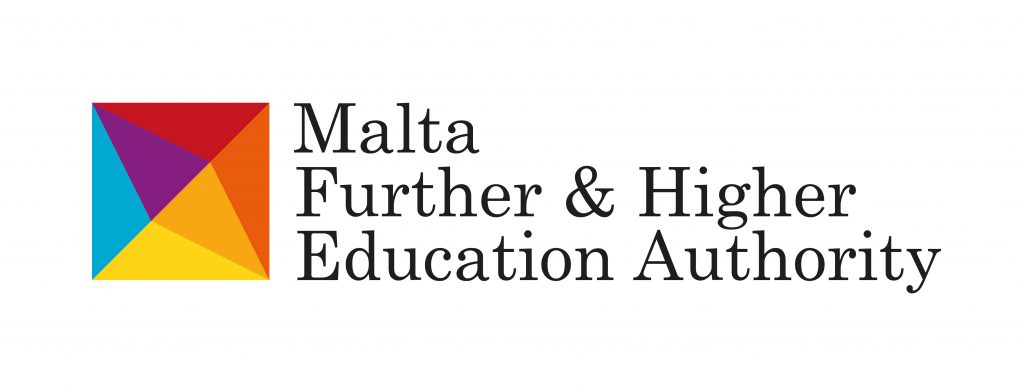jTELS/TELSa Elementary Award
in English as a Second or Other Language (ESOL)
jTELS/TELSa – Elementary Award in English as a Second or Other Language (ESOL) EQF/MQF Level 1 – 10 ECTS credits – Equivalent to A1 of CEFR
- The course is designed for Middle and Secondary level students and adult individuals who, for educational purposes, or for reasons relating to work or other personal issues, wish or need to gain a certificate which represents their actual level of English. The course certificate provides proof of the holder’s ability to use English to communicate in simple situations.
- Total Qualification Time is approx. 250 hours, split up as follows:
- 80 ‘guided learning’ hours (i.e. contact hours)
- 163 hours – active self-study
- 7 hours – Assessment + feedback
- The design of the course is based on a ‘continuous-improvement’ process, with interconnected components in each of its seven modules.
Entry Requirements:
Learners joining the course do not need any prior knowledge of the English language
Programme Objective:
- This course focuses on building the learners’ language knowledge and developing their basic competence in the four skills of Reading, Listening, Writing and Speaking, with regard to the English language, ensuring that they can achieve a level of competence which allows them to carry out basic language tasks as fluently and accurately as possible, whilst working or studying under direct supervision in a structured context.
Learning Outcomes
- This course focuses on building the learners’ language knowledge and developing their basic competence in the four skills of Reading, Listening, Writing and Speaking, with regard to the English language, ensuring that they can achieve a level of competence which allows them to carry out basic language tasks as fluently and accurately as possible, whilst working or studying under direct supervision in a structured context.
- Additionally, the course encourages methods of learning which help learners build up the knowledge, skills and attitudes needed to become more autonomous in their language acquisition journey.
- By the end of the course, learners will be able to ….
- demonstrate an ability to exercise some control over basic grammatical and lexical structures,
- understand simple information presented in short texts such as notices, posters, catalogues, articles relating to the most common everyday situations,
- identify the appropriate basic strategies required (skimming or scanning) to read, at times with some need of assistance, short informational texts, dialogues, messages, etc., in order to understand the general idea and key information, referring to any accompanying titles, visuals and/or data which can help with the understanding of gist
- establish the meaning of unfamiliar words from surrounding context or information, and analysis of form
- predict the content of simple texts through an initial analysis of title and opening sentence/paragraph, as well as any related visuals
- understand common words, simple set phrases and formulaic chunks relating to areas of personal or immediate relevance, and full sentences in short recordings, albeit with some/occasional repetition
- respond to questions about personal everyday activities
- make themselves understood in simple contributions, demonstrating a repertoire of simple language – and some memorised, set phrases &/or formulaic chunks – which enables them to function in simple situations
- write short, simple texts, containing a series of simple phrases and sentences which are linked with basic connectors, and demonstrating use of basic grammatical structures, capitalisation and punctuation. Their writing generally includes a number of basic mistakes, meaning is not always clear.
- explore learner dictionaries during guided learning hours and/or during self-study session, so as to (i) understand the meaning of new/ ’problem’ words in a text or a recording, and proceed to (ii) ‘store’, (ii) activate and (iii) recycle newly-learnt vocabulary. (Note: Dictionaries facilitate learner autonomy; therefore, guided discovery during contact hours is pivotal in facilitating ‘learning-to-learn’ strategies.)
- demonstrate an awareness of communication aims in relation to reading/listening material used as input material, as well as in their own output (i.e. Speaking and Writing)
- demonstrate some awareness of the key skills required in different forms of communication, and of social behavior when interacting with others on a 1-1 basis, and during group/team work in class, such as simple discussions, group work, and class projects,
- establish an after-school learning programme, under the guidance of the teacher/tutor, targeting a variety of structures, skills and themes covered during guided-learning/contact hours (e.g. Methods of ‘storing’ and activating vocabulary, such as spidergrams, word maps, collocation, and word families, etc. // Recalling, recording, recycling and/or activating earmarked grammatical and lexical structures// Drilling of newly learnt forms and structures // Expanding their vocabulary bank through personal learner diaries and vocabulary books // Recording phonetic symbols for individual problem sounds , etc.// Practising newly acquired reading and listening strategies// Practising (and developing further) new genres of output, as indicated by the teacher, etc.)
The above-indicated course objectives are mirrored in the overall aims of the relative syllabus for the jTELS/TELSa Level A1 examinations which are the earmarked instruments for the assessment of (i) progress registered during the course, and (ii) language proficiency at course termination. Assessment during the various stages of the course is meant to endorse the candidates’ competence in the four language skills, specifically targeting their ability to use English to communicate in simple situations.
To apply for the next available intake or to register your interest for the programme, kindly contact us on info@esatqualifications.com

